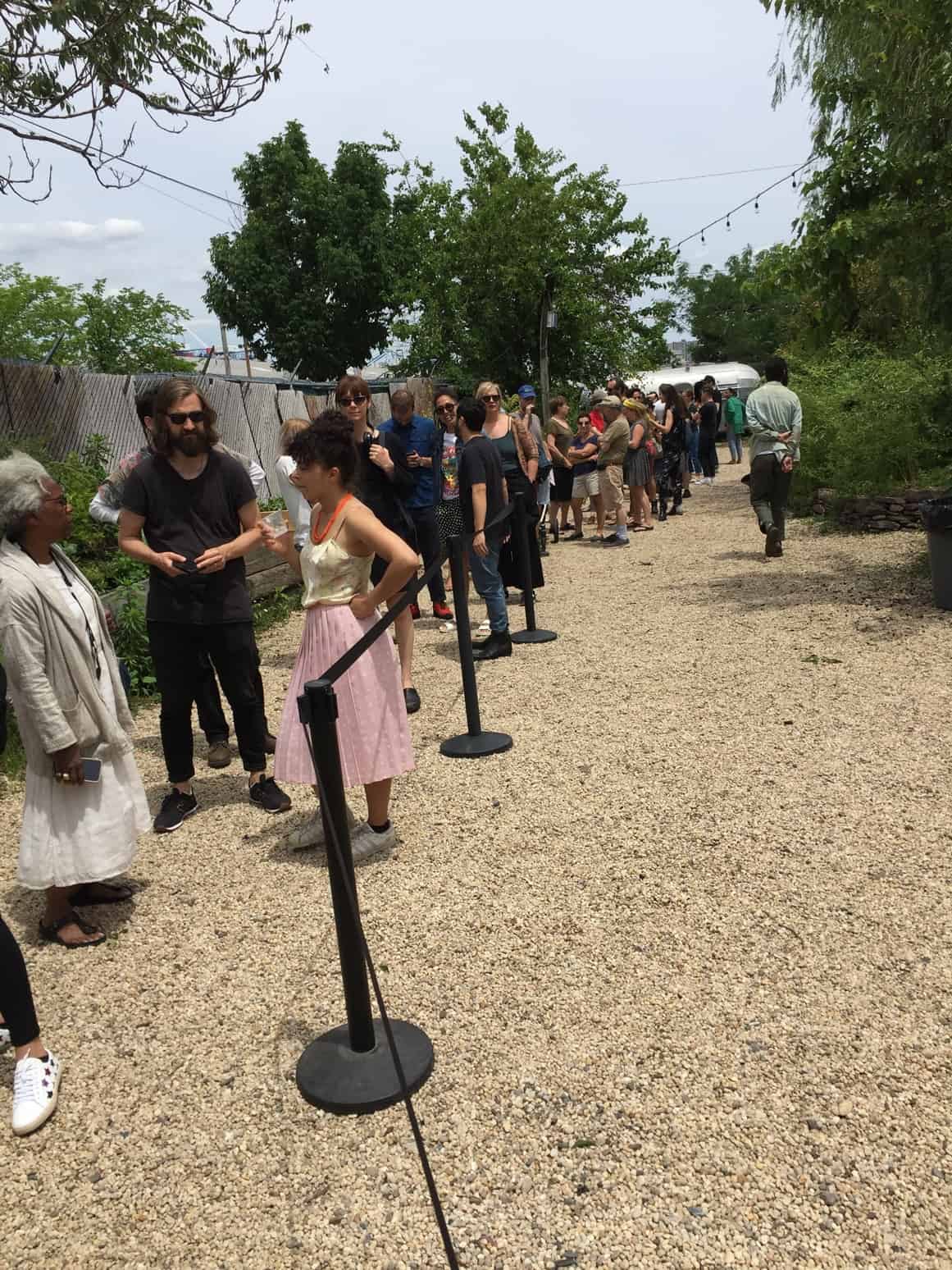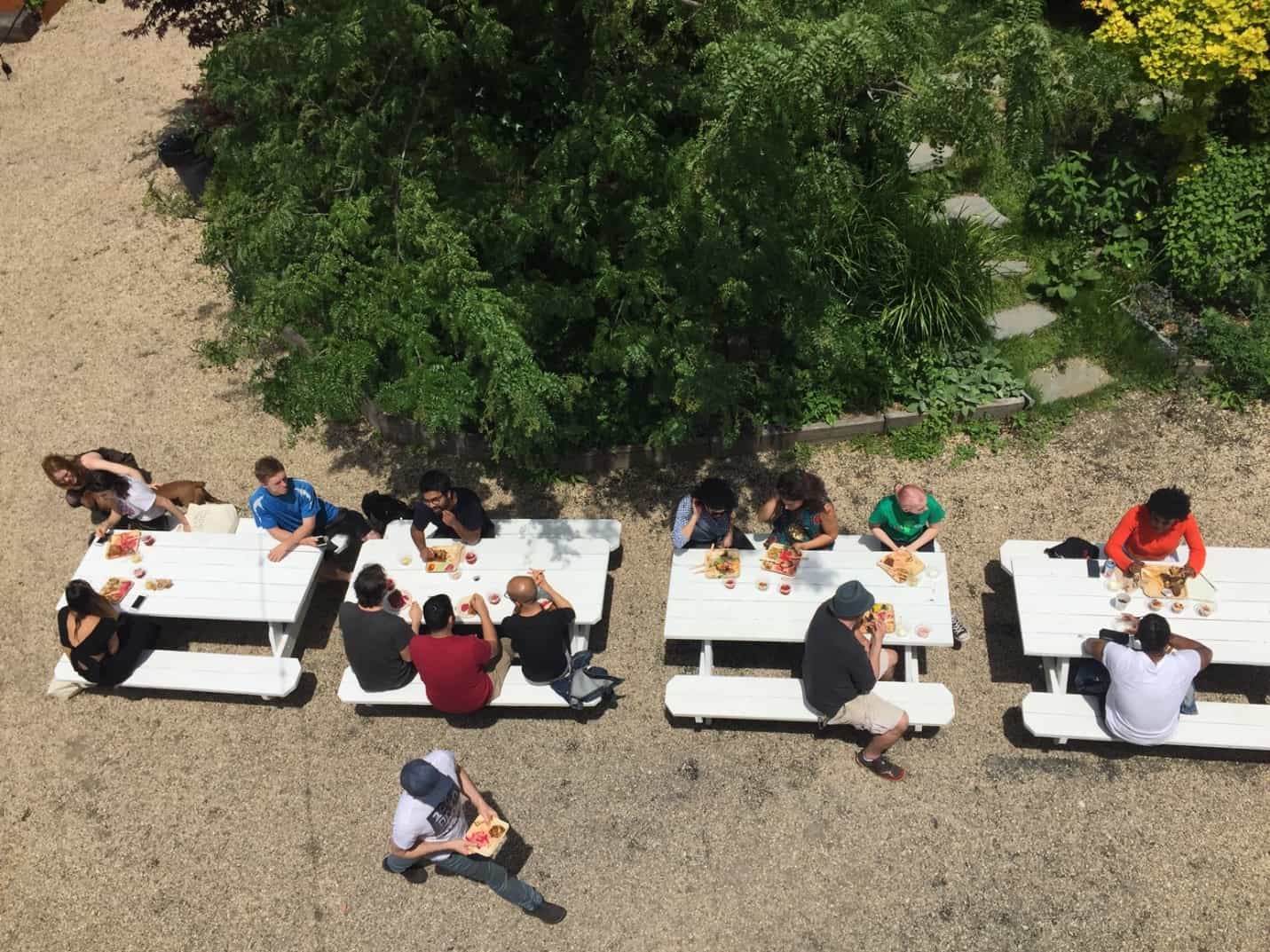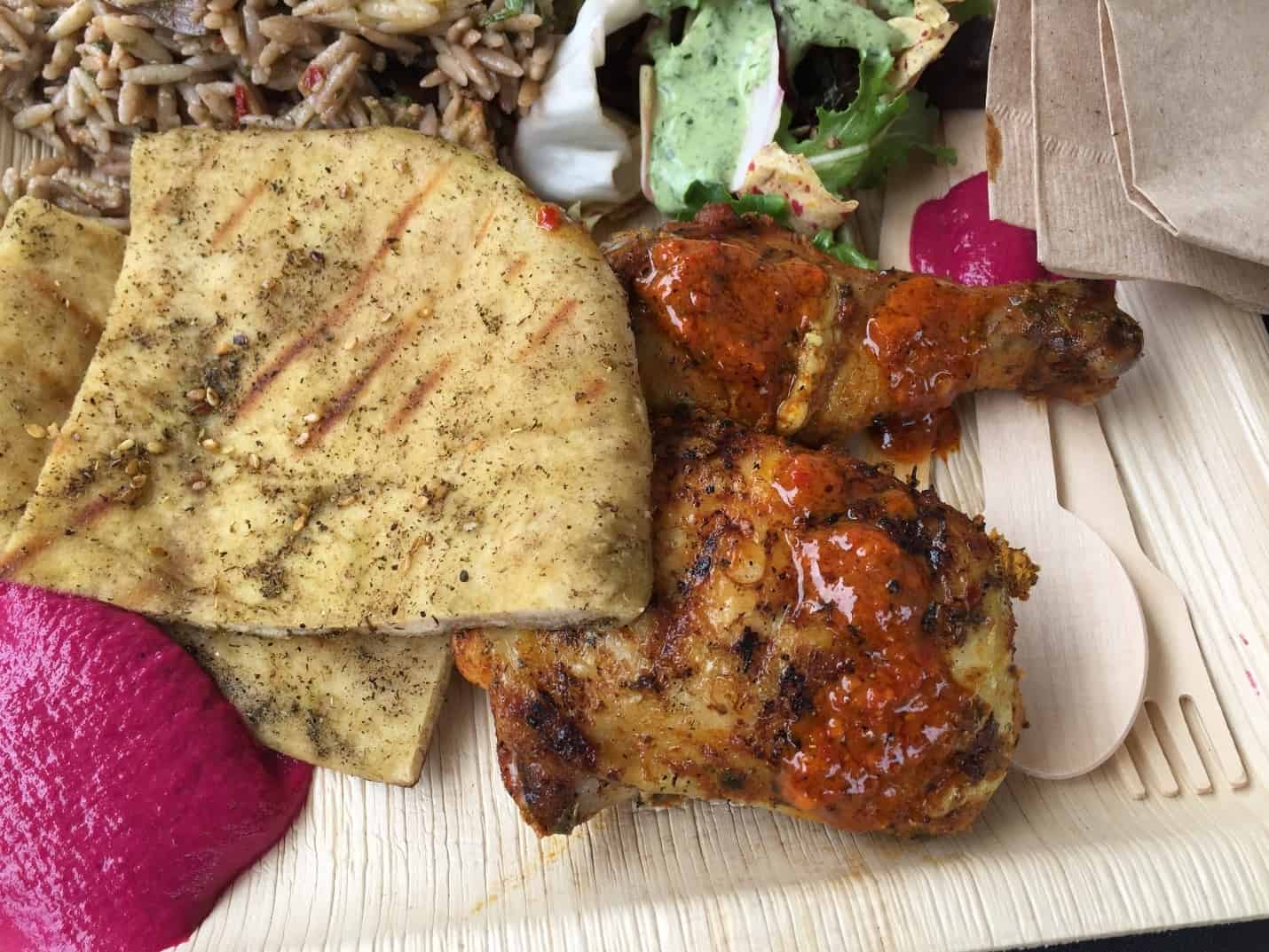From May to September, typically on the second Wednesday of the month, the arts organization Pioneer Works hosts $5 first-come-first-served lunches in its garden at 159 Pioneer Street. The series started in 2017, but I went for the first time this June.
For each gathering, Pioneer Works hires a new chef to cater the event. When I attended, the food came from Eli and Max Sussman, who own Samesa, a Middle Eastern restaurant on the Lower East Side and also independently operate the kitchen at the Grimm Artisanal Ales taproom in East Williamsburg. In the Pioneer Works backyard, they grilled chicken (seitan for vegetarians) and paired it with pickled radishes and greens, orzo salad, and flatbreads with beet dip.
The food was remarkable. Homemade Moroccan hot sauce gave the juicy, crispy chicken an extra kick. The salads – one savory and filling, the other light and piquant – complemented each other; the beet dip was rich and sweet. The Sussmans also poured a beverage of their own making, a deep-red concoction flavored with hibiscus, mango, apple, and lemongrass. Snack-sized chunks of lemon turmeric buttermilk cake provided a dainty bite of dessert.
 The Community Lunch series is no secret. The chefs, by their account, prepped for 120 guests, but the line grew longer, and the food, offered buffet-style (not of the all-you-can-eat variety), ran out before some of the latecomers could get plates. Even so, the ample outdoor space at Pioneer Works accommodated its visitors without trouble. When the seven picnic tables had filled, people began to scatter around the garden. Once they’d disposed of their single-use compostable wood plates and utensils, they wandered into the building.
The Community Lunch series is no secret. The chefs, by their account, prepped for 120 guests, but the line grew longer, and the food, offered buffet-style (not of the all-you-can-eat variety), ran out before some of the latecomers could get plates. Even so, the ample outdoor space at Pioneer Works accommodated its visitors without trouble. When the seven picnic tables had filled, people began to scatter around the garden. Once they’d disposed of their single-use compostable wood plates and utensils, they wandered into the building.
To judge by the quality of the food, the Community Lunch definitely is not a revenue-generating event for Pioneer Works, which conceives of itself as a dynamic space for multidisciplinary creation in the arts and sciences (“STEAM,” according to the new buzzword), not as a traditional gallery. It structures its outreach accordingly. The nonprofit is nearly as popular with kids as it is with art-world elites and regularly offers educational workshops, concerts, and parties.
 While I ate, I sat across from a sculpturist-collagist from Birmingham, England. She said she’d come to New York on a grant but was living mostly as a tourist. She’d heard about Pioneer Works and had walked over by herself from the Smith-Ninth Streets station. On the other side of me, two workers from the Red Hook Community Justice Center held a business lunch, scribbling into their notepads on the table. I also spotted Micah Rubin, the Star-Revue’s photographer, with his daughter; he wasn’t working.
While I ate, I sat across from a sculpturist-collagist from Birmingham, England. She said she’d come to New York on a grant but was living mostly as a tourist. She’d heard about Pioneer Works and had walked over by herself from the Smith-Ninth Streets station. On the other side of me, two workers from the Red Hook Community Justice Center held a business lunch, scribbling into their notepads on the table. I also spotted Micah Rubin, the Star-Revue’s photographer, with his daughter; he wasn’t working.
Back in January, I checked out the monthly Community Potluck at DE-CONSTRUKT, a considerably more DIY studio on Seabring Street. I found an intimate, art-focused evening that mixed dinner and small talk with presentations by a German filmmaker and a Chinese writer in residence.
I thought the event at Pioneer Works might be similar (albeit on a larger scale), but for most guests, the food appeared to be the point here: a non-art-lover, if he or she found out about it, could easily use the occasion simply as a lovely and inexpensive cafeteria.
It might violate the spirit of the event, but we all need to eat. Art is great, and STEAM supposedly is wonderful too, but food is more important than either.









